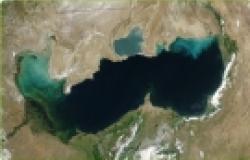The Black Sea-Caspian Region in Post-Conflict Energy Security Cooperation Scenarios: What Role for the Future?

The expansion of multinational pipelines for the transportation of oil and gas has created new opportunities for both cooperation and competition, with implications for stability and prosperity in the wider Black Sea-Caspian basin where the protracted conflicts in Abkhazia, South Ossetia, Trans-Dniester, Donbas and Nagorno-Karabakh have exacerbated mounting dangers to the regional security situation. The two regions comprising the five Caspian littoral states and the six Black Sea coastal countries have become crossroads for increased commerce and economic development as the old Silk Road is revived. Although each of these countries is trying to evolve its own strategy to confront the issues at hand, there is a lack of comprehensive understanding of the need to address energy security challenges from a regional perspective. It is believed, however, that mutual economic gains can reshape regional mindsets, which, at present, get in the way of tackling the most serious disagreements. Public debate on the commercial value of peace can help the political elite promote confidence-building over intra-regional fractures. Boosting regional cooperation in the energy sector and adopting resource-centered strategies for the management of related natural resources can enhance energy security for the whole region so everybody can win. This opinion piece applies post-conflict scenario planning to the future of the regional energy security cooperation in the Black Sea-Caspian basin and describes collaborative steps that could be taken by all relevant players to think more deeply about promoting the integration of energy markets in this part of the world. Overall, the article examines possible ways the post-conflict energy security cooperation scenarios could contribute to shaping conditions that allow political leaderships to consider negotiated compromise solutions to intractable problems.
Policy recommendations
- Political elites in the Black Sea-Caspian region should place greater emphasis on the critical role of the energy sector as the driving force in incentivizing regional networking and in making energy security cooperation possible.
- All relevant players should take part in a step-by-step consultation process to assess concerns and the willingness for engagement among governments, civil society, and the private sector, and to examine the important role the post-conflict energy security cooperation scenarios could play in developing specific blueprints that could be implemented in the future.
- Given the strong need for a wider regional dialogue to enable stakeholders to define and harmonize their interests, policies and strategies, government agencies, civil society organizations and private sector institutions should join under the aegis of the OSCE and the Energy Charter to elaborate a post-conflict regional energy security institution for the Black Sea-Caspian basin.
- Due to a rapidly changing geopolitics, demographic problems, energy disasters, climate change, terrorism, cyber-attacks and other global challenges, energy producers and consumers should take the lead in working together to forge a region-wide energy security agenda through regional institutions and in conjunction with the OSCE and the Energy Charter.
Photo Credit: Blatant World Via Flickr (CC BY 2.0)


